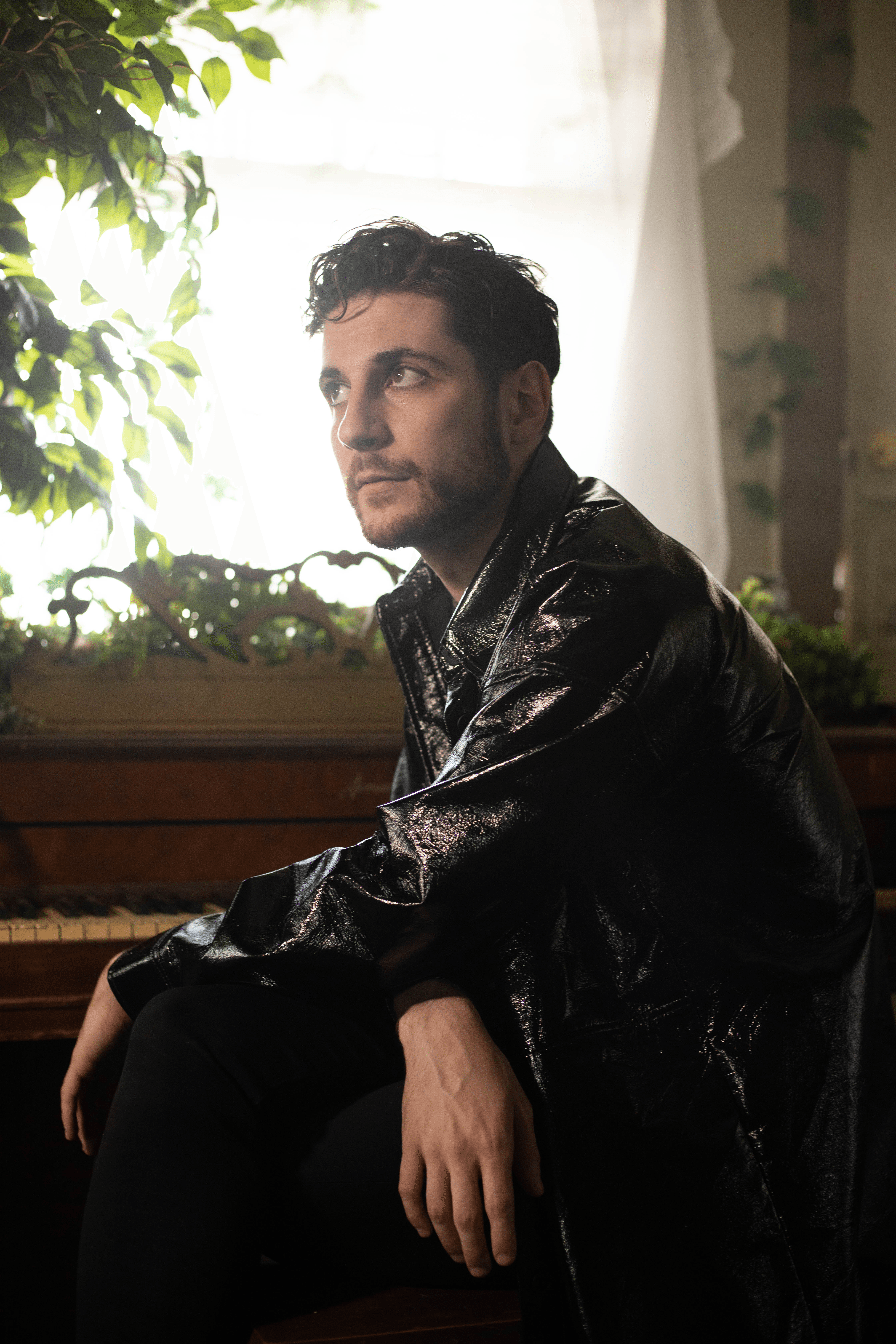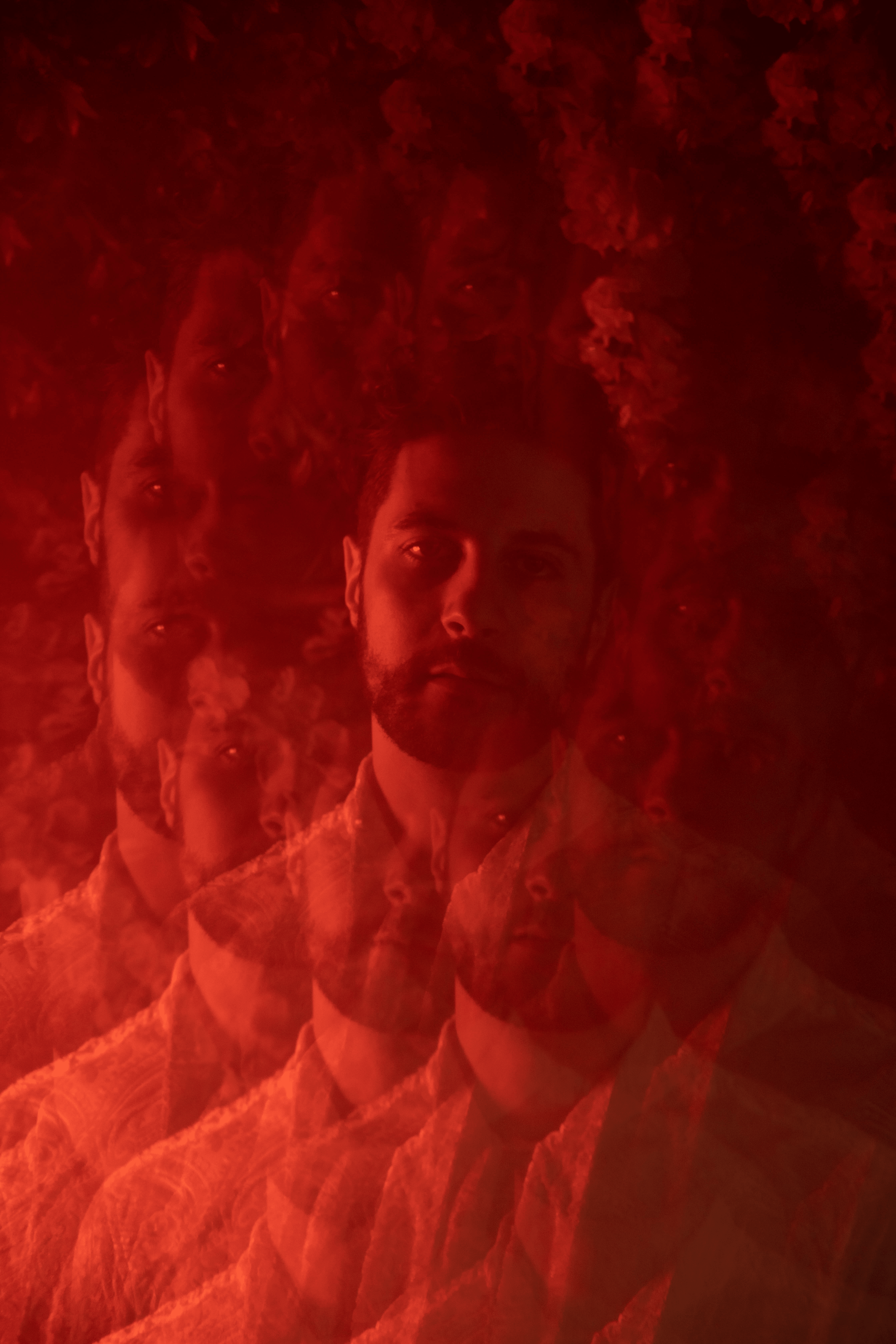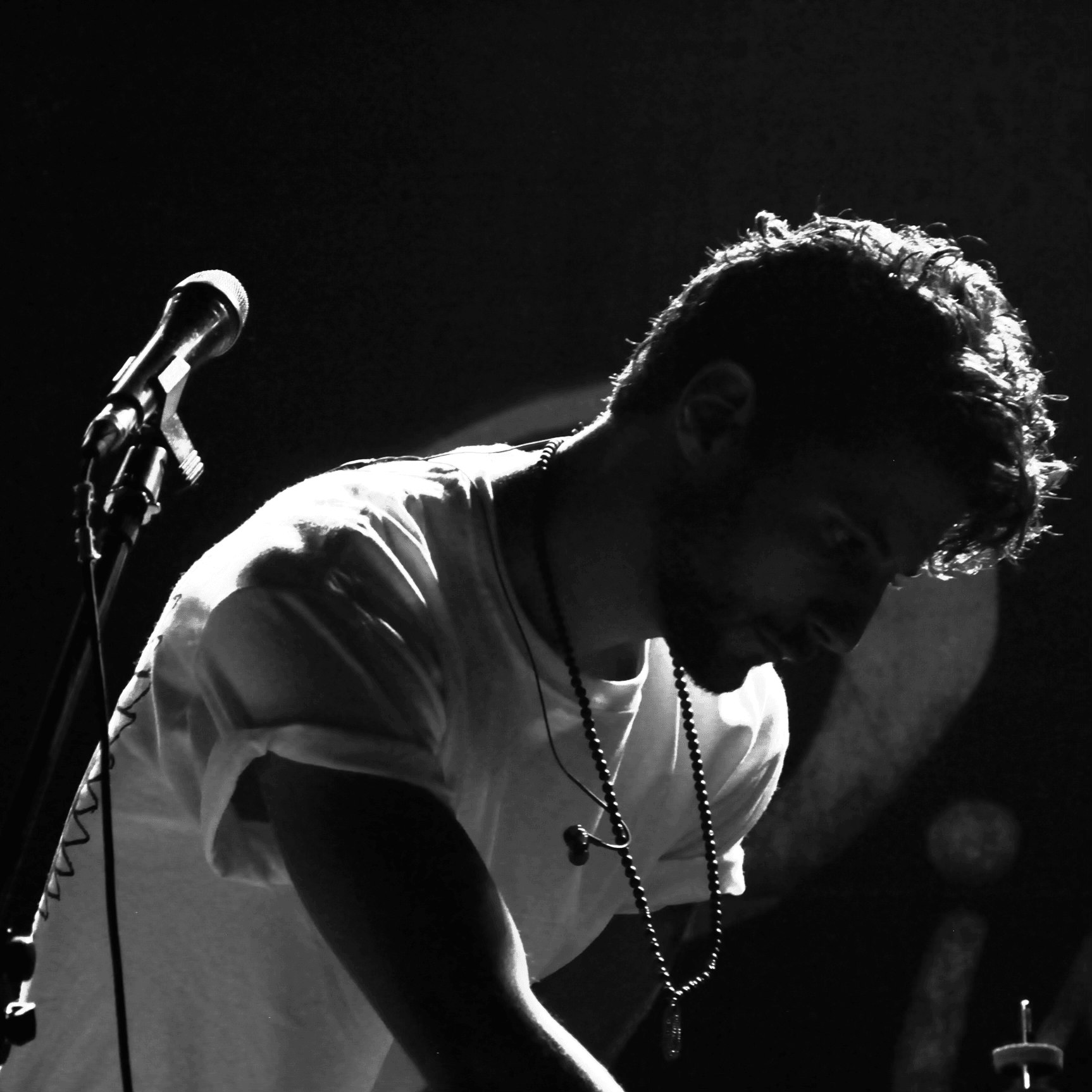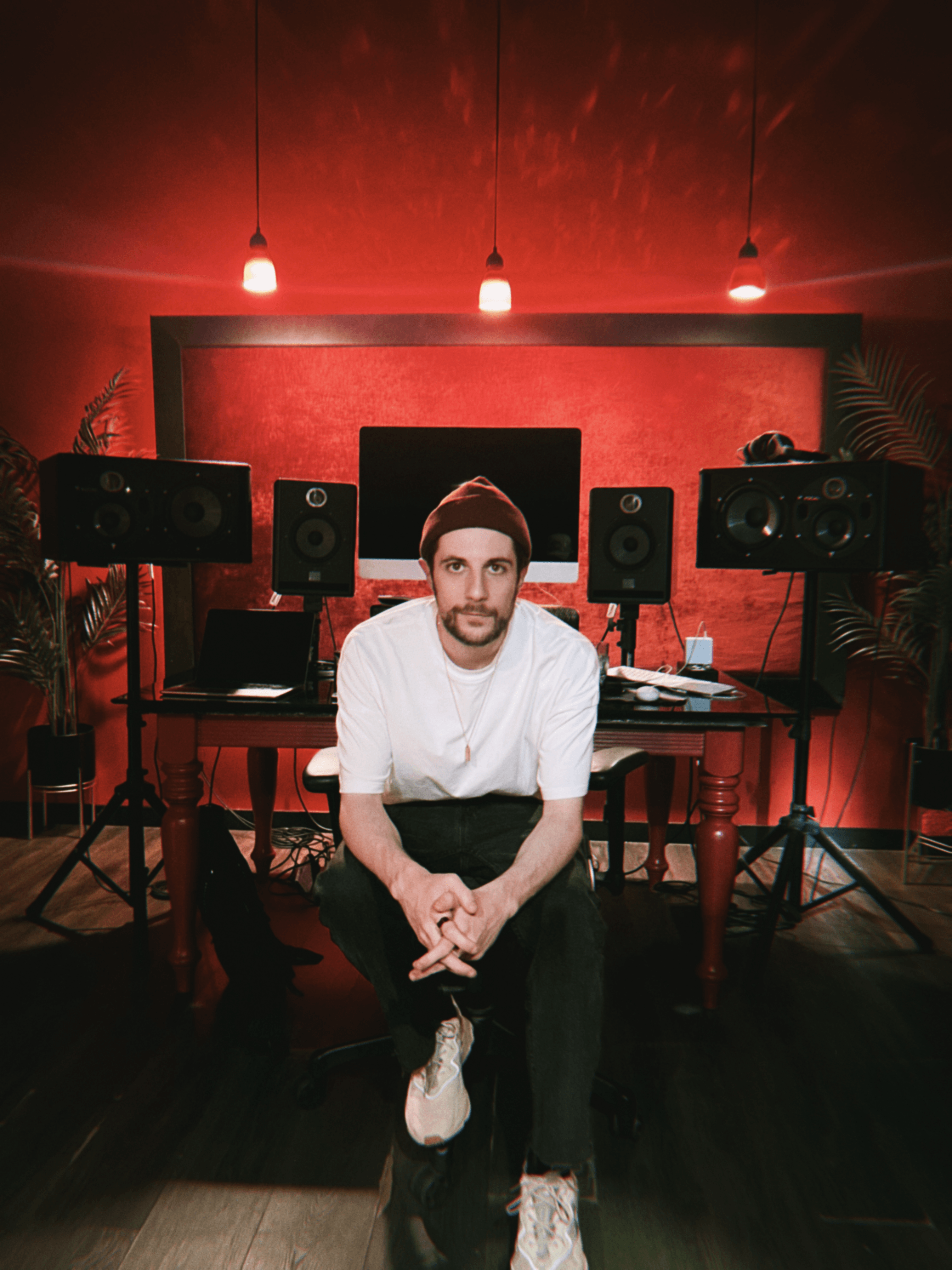Meet Quiet Son | Music Producer, Composer & Mixing Engineer

We had the good fortune of connecting with Quiet Son and we’ve shared our conversation below.
Hi Quiet, have there been any changes in how you think about work-life balance?
Balance is a crucial aspect of my work, not just for myself but also in my role as a producer working with artists. When I first started, I remember feeling a significant lack of balance: I worked excessively and struggled to detach my mind from my work even during downtime. This imbalance naturally stifled the openness I was trying to communicate in my music, making it feel forced at times. That experience taught me a huge lesson: that stepping away and giving a project, as well as my mind and body, some space is as essential as the time spent actively working on it.
As I’ve gotten older, I’ve learned to establish better boundaries for myself around my creativity and my work, and the way I speak to myself about it. Hopefully I’ve been able to inspire the artists I work with to do the same. In such a competitive industry, driven by the pressures of capitalism and the need for constant self-promotion and “visibility,” I think its more important than ever to stay connected to your creativity and original purpose. In the age of social media and streaming, we’re bombarded with metrics that supposedly define our success through views and streams, and the constant pressure to present a curated image to the world can be incredibly exhausting. It’s so easy to let this bleed into the creative process! It can be a regular occurrence in sessions to talk about ways to get to the hook faster so its snappy for social media, or making songs shorter to manipulate the streaming service algorithms. To counter this, I try to make sessions a sacred space, encouraging myself and the artists I work with to put the outside world aside and focus on writing meaningful songs.
So all of that to say, balance is a work in progress but one I’m continually striving for!

Alright, so let’s move onto what keeps you busy professionally?
I’m primarily a producer and mixing engineer, although I’ve been branching more into film composing recently. I’m fascinated by how music is an inherent part of human communication and how many of us experience the world through it without even realizing it. Our speech is tonal, dynamic in volume, and rhythmic. We can feel the rhythm of our breath and our hearts, or trembles in our muscles. We notice patterns in sounds around us every day, even subliminally. I try to bring that understanding to my work, often discussing with artists how we can add elements to songs that are “more felt than heard.” I think this approach works really well with percussion, but even adding subtle ambient textures or drones can add a little emotional depth to a song in the way that it makes us feel. But even in vocal production, I love adding shouts or whispers, or even extra long breaths to add subtle feeling to a song. I just love playing with creating moments of tension and release, and really small, seemingly insignificant changes to the small details of rhythm parts can make a world of difference in how we experience a song or composition.
Style-wise, I like to describe my sound as “grandly intimate.” I work across a lot of genres, but focusing mainly on dream pop, electronica, folktronica and bedroom pop. The through line across all of my work is bringing a cinematic sensibility to any style of pop. I’m proud of how I’ve been able to fluidly a work across genres while maintaining an introspective, cohesive sound. I love world-building, and my focus with every song is to temporarily and completely transport the listener. Music can expand our senses and perspectives, or even offer a temporary escape from our own circumstances, so part of my practice is to create immersive sonic landscapes and encourage a free approach to songwriting and production composition.
There have been several challenges along my career, many of which actually go back to balance. As a musical artist, it took me a long time, countless hours of practice, and pushing my own tastes to reach a point where I could draw from my diverse influences in a way that sounded uniquely me, rather than imitative. I had to learn not to be precious about certain compositional sounds if they didn’t serve the song. I started to find that a lot of songs I worked on were cluttered or had competing ideas because I wasn’t trusting myself to embrace simplicity. Realizing that I was masking myself by adding more layers of sound was a hard but necessary lesson to learn. It came from an ego-driven need to create dense tracks, thinking that was taking risks when actually, I was being timid. I had to learn to trust myself musically, which meant being intentional about removing instruments and not overcrowding my compositions. Basically, I had to get out of my own way!
As a producer, working in rooms full of artists presents its own set of challenges. I’ve learned its important to strike a balance between being a supportive creative partner while also bringing in my own point of view. It’s also important to me that everybody in the room feels valued, taken care of, and empowered to contribute their talents without judgement. Making music is a really personal process for everybody, so sometimes it can be a tightrope when disagreements come up in the studio. But that’s part of the process, and I’ve had to learn to maintain a calm demeanor, embrace it, and make sure everybody’s voice is both respected and staying respectful. Another part of my role is to help artists stay grounded while working on their music which can be hard! We’re all human, so sometimes an artist (or myself) comes into a session having a bad day or week. My responsibility and a huge part of my work is creating an environment where artists feel safe to come into a session as they are, while also providing constructive feedback on our work with compassion. Learning to navigate these dynamics took time, patience, and experience. I had to develop the skill to listen deeply and intuitively understand each artists needs. This involves being a mediator and a motivator, and keeping the creative process productive and inspiring even on a bad day.
So my journey has been one of continual learning and growth, and a deepening love for music. I learn every day in new ways how important music is to the world, and I feel grateful to be able to create it every day!

If you had a friend visiting you, what are some of the local spots you’d want to take them around to?
Three words: Leo’s. Taco. Truck! This is my go-to spot anytime a friend is town and wants a delicious meal and I can’t help but order more tacos than I could possibly eat every time.
A long weekend in LA has so many possibilities! I’d start off with splurging on a coffee concoction from Day Glow in Weho, then grabbing brunch at a diner.
Afterwards, exploring Melrose Ave and hitting Amoeba Music for some vinyl is a must. There’s also some killer bookstores to peruse, like Book Soup and Skylight Books. You also can’t come to LA and not spend time outside, so a good hike or drive up the PCH, with a stop at Will Rogers Beach for some sun is an amazing way to spend the afternoon. I’d follow up with dinner at Bacari in Silverlake or Mirate in Los Feliz.
I also love how close Disney Land is and how easy it is to do the whole park in a single day. Lastly, we have so many tours that either kick off or close in LA, so a good concert is always within arms reach and is a great way to cap off an LA adventure.

Who else deserves some credit and recognition?
There’s so many! My partner, my family and friends first and foremost deserve immense recognition for all of their unwavering love, support, and inspiration. My friend and fellow producer Jack Bandarenko and I have journeyed through this industry together, and I’ve always valued his calm & steady approach to life and work. We’ve built a friendship where we challenge each other to be our best selves, and support each other when we aren’t.
There’s also so many teachers and mentors to thank, including Dr. Ellen Fishman for introducing me to music production and letting me spend a little *too* much time in the studio. Paul Botelho for expanding my understanding not just of the science of audio engineering but also the philosophical approach. Diane Zaiko & Junction Music for giving me my first job, teaching me the ropes, and taking a chance on me.
Website: https://quietson.com
Instagram: https://www.instagram.com/quietsonmusic/?hl=en
Other: https://open.spotify.com/artist/0tEWuyL03M1tMwGHUNyE2G?si=OPjwb453R8–_iushqCdqQ


Image Credits
Studio Photos – Emmanuel Ramos IG: @e.ramosshots
Red Photo, Photo with black jacket by piano, photo with leaves: Sarah Midkiff IG: @sarahlmidkiff
B&W studio photo: no credit needed
Red studio photo: no credit needed
